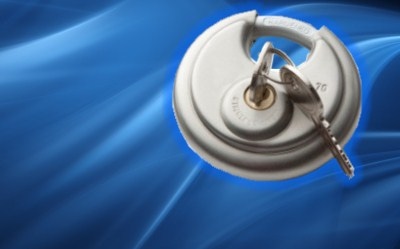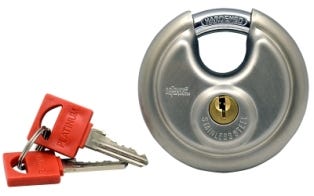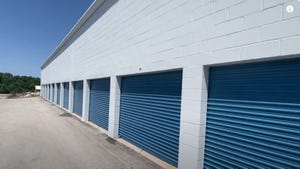Locks are the most commonly sold retail item in the self-storage industry, with the disk lock as the gold standard. But all disk locks are not created equal. Learn how to recognize a quality lock and then promote it to customers.
May 30, 2013

By Rob Kaminski
Locks are the most commonly sold retail item in the self-storage industry, so youd think no one would be a better buyer and seller of these items than an experienced self-storage operator. But thats not necessarily so.
Originally, self-storage owners stocked locks as a convenience to customers who didnt arrive with one in hand. They also wanted tenants to use locks that provided better security and reliability. The disk lock met those needs and has become the gold standard of the industry, so we'll focus on that type here.
Some facility operators still believe that simply negotiating the lowest price and getting quantity discounts makes them shrewd lock buyers. And they might be right ... if all disk locks were the same; but theyre not. The reason theres always another peddler ready to undersell everyone is their disk locks are simply made cheaper.
Whats wrong with cheaper locks? Nothing if youre not the one selling them. But stick renters with locks that jam, break keys or can be opened by other tenants, and watch your profit and reputation suffer. This article will help you recognize a quality lock and then promote it to your customers.
Lock Criteria
 Ever wonder how some disk locks can be sold so inexpensively? The secret is its rare for a manufacturer to find a more economical way of making locks. Overseas, labor costs are not a problem, so materials and machining is where they cut corners. The end product looks like other disk locks but lacks the quality your customers deserve.
Ever wonder how some disk locks can be sold so inexpensively? The secret is its rare for a manufacturer to find a more economical way of making locks. Overseas, labor costs are not a problem, so materials and machining is where they cut corners. The end product looks like other disk locks but lacks the quality your customers deserve.
So what should you look for to prevent or minimize problems that can hurt your customer relations? Here are six items to evaluate when it comes to disk locks:
Quality metal: Broken keys are usually due to flimsy metal. Dont accept aluminum keys unless you enjoy grinding off locks plus giving refunds. Stick with brass or steel only.
Rust issues: Jammed locks are usually caused by rust. In the internals or the keyway, rust can make it impossible to turn the key. Stainless steel stamped on the outside doesnt guarantee the insides arent zinc, aluminum or pot metal. Get the specs in writing.
Drain holes: Rust prevention is why all quality disk locks have drain holes around the edge at 3, 6 and 9 oclock. If any are missing, pass on that bargain.
Keyway pins: These should be solid brass, not just brass-plated. If theyre not, they could rust, too, and youll be grinding and refunding again.
Key changes: Possible key changes are meaningless. Weve all heard of tenants trying their key in the wrong unit and opening it! A lock may have enough pins to make, say, 7,000 key changes mathematically possible. But making 7,000 different keys for 7,000 locks costs money. So some companies cut the number of actual key changes to 700 or 70 or even less to reach that bargain price point. Ask the manufacturer to put the number of actual key changes in writing. Any reputable supplier will stand behind its specifications.
Discounts: Judge prices at less than quantity discount levels. Why tie up all that space and capital for months just to save a few bucks? Find a supplier of all the retail products you need with a low order minimum and buy a few weeks supply. Period.
Selling Locks
First, lets talk about how locks are often sold. Virtually every self-storage facility offers other kinds of locks in addition to disk locks. Theyre usually laminated or brass padlocks to give the renter economy options.
Disk locks, we know, are better suited and more profitable, so display them more prominently. Have one at the counter for renters to try. When they do, your manager can tell them why theyre better. If the manager needs training materials, ask your supplier. They should be free.
But if you stock locks other than disk locks, heres a different point of view you may want to consider: Why offer econo-locks at all?
Offering several types suggests any old lock will do. So maybe those locks at the discount store are OK. Or what about the old-school combination lock in the junk drawer? In either case, your lower-priced locks may still seem too high to them and you could even lose sales.
The problem is the public is very familiar with ordinary padlocks. On the other hand, the disk lock is often new to the renter. Its novel shape and construction support the idea that heres a lock designed for self-storage. And because the public is not familiar with them, customers cant be sure what they should cost.
Im not saying you should immediately display only disk locks. But it might be an eye-opener to test that approach at one facility over a month or so. Compare the ratio of lock sales to rentals to see what happens to your total lock sales. If they remain unchanged, then you would see better margins than you had selling lower-priced locks. It would also reduce your inventory outlay and improve overall security.
Rob Kaminski is vice president of Supply Side USA, a national distributor of packaging, moving and storage supplies for more than 50 years. He has helped self-storage owners improve their retail sales for more than 25 years. He has written numerous articles on the topic and speaks at industry tradeshows. For more information, call 800.305.6110; e-mail [email protected]; visit www.supplysideusa.com .
You May Also Like





